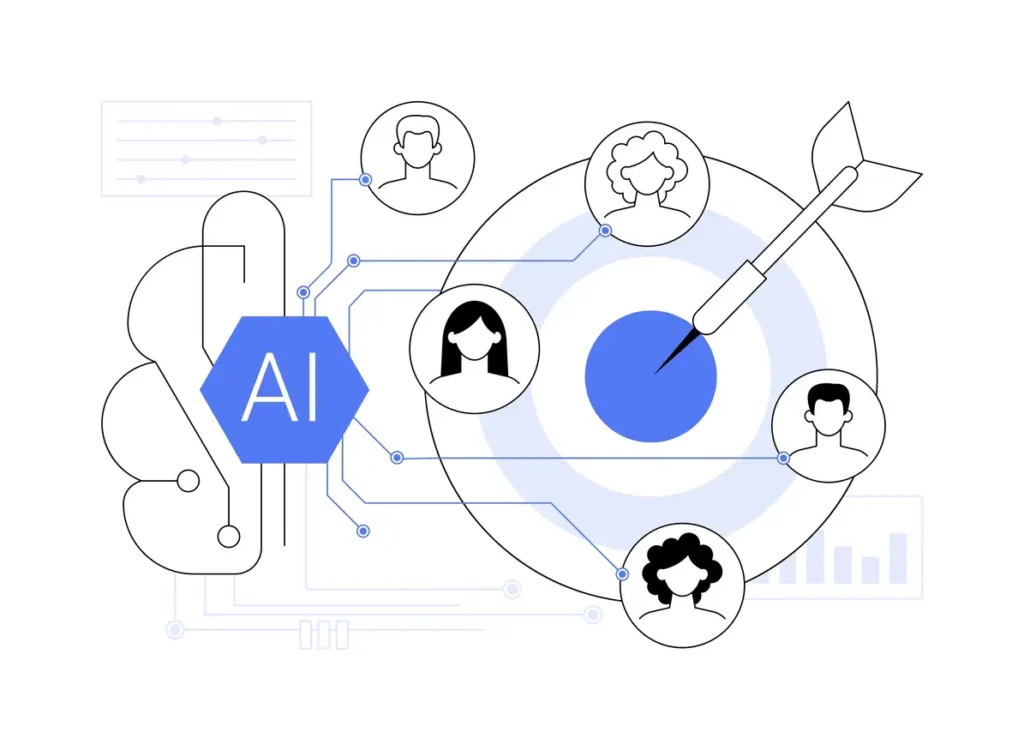Revolutionize Your Business: Just How AI Automation Is Transforming B2B Workflow
AI automation is improving B2B procedures in significant methods. Firms are adopting this innovation to simplify workflows and improve performance. As jobs come to be automated, businesses can concentrate on strategic growth instead of ordinary procedures. The effects of these changes are profound, influencing whatever from client communications to provide chain monitoring. Understanding this change is crucial, as the future of company rest on the efficient assimilation of AI right into day-to-day procedures. What lies ahead in this developing landscape?
Recognizing AI Automation in B2B Context
As businesses increasingly look for effectiveness, recognizing AI automation within the B2B context comes to be important. AI automation describes the application of man-made knowledge innovations to enhance and enhance company processes. In B2B environments, this can show up in numerous forms, such as automating data entrance, enhancing supply chain logistics, or enhancing stock monitoring. Organizations leveraging AI automation can lower functional expenses, reduce human error, and rise performance. AI devices can assess huge amounts of information to supply actionable understandings, making it possible for educated decision-making. The combination of AI into B2B procedures not only transforms typical operations however likewise promotes dexterity and scalability, enabling organizations to adjust to market adjustments quickly and successfully. Accepting this innovation is crucial for staying affordable in today's digital landscape.
Enhancing Customer Experience Via AI
How can AI transform client interactions in the B2B market? AI enhances client experience by offering individualized, timely, and effective solution. Intelligent chatbots and digital assistants can handle queries 24/7, guaranteeing customers get prompt responses. Anticipating analytics allow companies to prepare for customer requirements, customizing offerings appropriately. AI-driven systems can assess customer data, allowing for targeted advertising and marketing techniques and enhanced interaction. In addition, belief evaluation tools examine consumer responses, helping organizations tweak their services. By automating regular tasks, AI frees up human sources to concentrate on high-value interactions, promoting stronger connections. The combination of AI not only enhances interaction but likewise constructs trust and commitment, inevitably boosting the general customer experience in the competitive B2B landscape.
Streamlining Supply Chain Monitoring With AI
AI plays a necessary function in enhancing supply chain monitoring with anticipating analytics and automated stock control (Minarik AI). By leveraging predictive analytics, businesses can expect demand changes and change their procedures appropriately. Automated supply systems further boost efficiency by ensuring supply levels are kept, reducing waste and improving overall efficiency

Anticipating Analytics Advantages
While numerous businesses face difficulties in handling intricate supply chains, anticipating analytics uses a transformative service by leveraging huge quantities of information to forecast trends and optimize procedures. By evaluating historical data alongside real-time inputs, predictive analytics makes it possible for firms to identify patterns and expect future demands. This insight enables even more educated decision-making, enhancing performance and minimizing prices. Additionally, organizations can proactively address prospective disturbances by predicting supply chain bottlenecks and readjusting methods appropriately. The combination of predictive analytics not only boosts inventory monitoring yet likewise promotes more powerful connections with distributors and consumers via timely reactions to market changes. Eventually, the adoption of anticipating analytics encourages organizations to remain competitive in a significantly dynamic organization environment.
Automated Supply Control
As companies progressively depend on anticipating analytics to enhance supply chain procedures, automated supply control emerges as a powerful ally in this effort. By leveraging AI-driven innovations, companies can enhance precision in stock monitoring, minimize stockouts, and minimize excess stock. Automated systems analyze real-time information, allowing services to predict need fluctuations and change supply levels as necessary. This not only enhances order fulfillment however also enhances cash money flow monitoring by decreasing holding prices. Additionally, AI can recognize patterns in purchasing habits, making it possible for more enlightened decision-making concerning distributor connections and purchase techniques. Ultimately, automated inventory control not only enhances functional performance but also enhances client complete satisfaction by making certain item schedule, solidifying its role as an essential component in contemporary supply chain monitoring.
Data-Driven Decision Making Powered by AI
In today's competitive landscape, organizations significantly rely upon data-driven decision-making to improve functional performance and tactical preparation. Expert system plays a pivotal function in this improvement by assessing vast amounts of data quickly and precisely. AI algorithms recognize patterns, fads, and anomalies that human experts might forget, enabling businesses to make enlightened decisions based on real-time insights - Growth Systems For B2B. This capability allows companies to anticipate market shifts, enhance source appropriation, and customize their offerings to consumer needs. Furthermore, AI-driven analytics assist in risk evaluation and administration, making sure that companies can navigate uncertainties successfully. By leveraging these sophisticated tools, businesses not only enhance their decision-making processes however also get a competitive advantage in their respective markets, fostering growth and innovation
Automating Repetitive Tasks to Boost Productivity
Streamlining repeated tasks through automation greatly enhances efficiency within B2B operations. By executing AI-driven solutions, companies can get rid of ordinary activities such as information entrance, invoice processing, and record generation. This change enables workers to concentrate on higher-value tasks, cultivating imagination and calculated thinking. Automating these taxing procedures not only decreases human error however likewise increases operations effectiveness. Additionally, services can accomplish consistent results and boosted accuracy, which is critical in keeping client complete satisfaction. The integration of automation tools enables companies to designate sources a lot more effectively, ensuring that groups can respond swiftly to market needs. Ultimately, adopting AI for repetitive jobs is a calculated move that changes operational capacities and drives overall business development.
Integrating AI With Existing Service Procedures
Several organizations encounter challenges when incorporating AI with existing organization processes. These difficulties commonly stem from a lack of recognizing regarding how AI can match existing operations. Successful assimilation requires a complete analysis of existing operations to determine locations where AI can include worth. Organizations should additionally assure that their teams are geared up with the needed abilities to leverage AI tools properly - Growth Systems For B2B. In addition, smooth integration rests on the compatibility of AI innovations with heritage systems. Firms typically locate it beneficial to adopt a phased method, piloting AI applications in details divisions prior to a more comprehensive rollout. This approach enables modifications based on preliminary responses, assuring smoother shifts and maximizing the possible benefits of AI automation in boosting performance and performance
Future Patterns in AI Automation for B2B Business
As B2B business want to the future, enhanced data analytics is readied to play a critical function in driving decision-making processes. Smart procedure automation will certainly also arise as a vital fad, enhancing operations and improving performance. These advancements assure to improve exactly how companies run, inevitably resulting in more responsive and dexterous companies.
Enhanced Information Analytics
While services increasingly depend on data-driven choices, the role of AI in boosting data analytics is coming to be a lot more important in B2B procedures. AI innovations facilitate the collection and evaluation of vast datasets, making it possible for business to reveal beneficial understandings that drive tactical preparation. Predictive analytics powered by AI permits organizations to anticipate market fads and client actions with greater precision. Additionally, equipment discovering algorithms improve information interpretation, recognizing patterns that human analysts may forget. This results in even more informed decision-making and enhanced source allotment. As B2B firms proceed to accept AI-driven analytics, they can anticipate enhanced functional efficiency, improved customer experiences, and an one-upmanship out there. The future of data analytics in B2B rests on incorporating advanced AI abilities.
Intelligent Refine Automation
Intelligent Process Automation (IPA) is positioned to transform B2B operations by effortlessly integrating AI technologies with typical business processes. This cutting-edge technique integrates robotic procedure automation (RPA) with advanced AI capacities, allowing companies to improve performance and accuracy. Firms can automate recurring jobs, such as data entry and invoice handling, allowing workers to concentrate on calculated efforts. IPA additionally leverages equipment knowing and natural language handling, boosting decision-making with real-time data analysis. As services increasingly adopt IPA, they can anticipate considerable cost reductions and improved client experiences. Future fads suggest a growing dependence on IPA for scalability and flexibility, positioning companies to thrive in an ever-evolving industry. Welcoming IPA will certainly be vital for maintaining competitiveness in the electronic age.
Regularly Asked Questions
What Industries Advantage Most From AI Automation in B2B Operations?

Just How Can Local Business Implement AI Automation Efficiently?
Little services can carry out AI automation successfully by recognizing repetitive tasks, choosing appropriate tools, integrating solutions slowly, educating staff, and continually examining performance to maximize procedures, guaranteeing a smooth changeover and making the most of performance.
What Are the Costs Associated With AI Automation Application?
The costs associated with AI automation application usually consist of software purchase, facilities upgrades, training staff, ongoing maintenance, and possible consultation charges. These expenses can vary considerably based on the scale and complexity of the automation solutions chosen.
Exactly how Do I Measure ROI From AI Automation Initiatives?
To gauge ROI from AI automation initiatives, one should examine price savings, productivity improvements, and revenue growth against execution costs. Tracking essential performance signs in time supplies useful understandings right into effectiveness and general return on investment.
What Skills Are Required to Manage AI Automation Projects?
Effective administration of AI automation tasks calls for abilities in task administration, information evaluation, shows, and comprehending AI innovations. In addition, strong communication, analytic capacities, and versatility are crucial for steering the intricacies of such campaigns.
As services significantly seek performance, understanding AI automation within the B2B context comes to be important. The useful site combination of AI right into B2B procedures not just transforms traditional process yet additionally promotes dexterity and scalability, enabling companies to adjust to market adjustments promptly and successfully. While services significantly count on data-driven decisions, the function of AI in enhancing data analytics is coming to be extra essential in B2B operations - Growth Systems For B2B. Smart Process Automation (IPA) is poised to reinvent B2B operations by effortlessly incorporating AI technologies with conventional organization procedures. Effective monitoring of AI automation tasks calls for skills in project monitoring, information evaluation, programs, and comprehending AI modern technologies